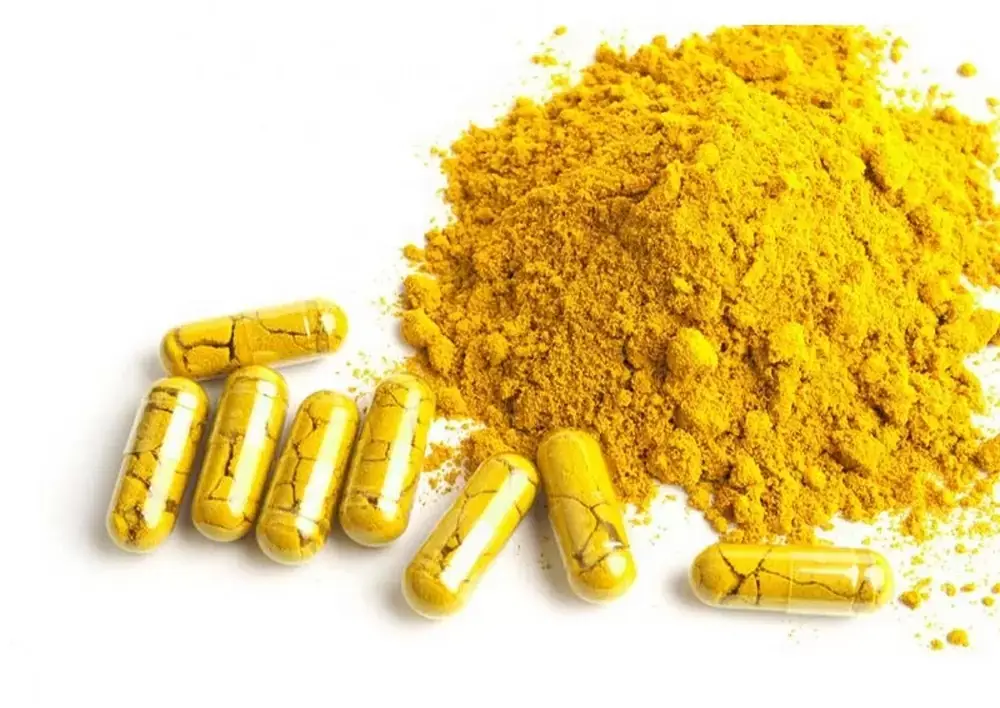The Science Behind Berberine Hydrochloride Powder and Lipid Control
Berberine Hydrochloride powder has emerged as a powerful natural compound in the realm of lipid control and metabolic health. This yellow alkaloid, derived from various plants, particularly those in the Berberis genus, has garnered significant attention in scientific research for its remarkable ability to regulate cholesterol and triglyceride levels. The science behind Berberine Hydrochloride powder's efficacy in lipid control is multifaceted, involving complex mechanisms that interact with cellular metabolism and gut microbiota. As a potent bioactive substance, Berberine HCl powder has demonstrated promising results in managing dyslipidemia, a condition characterized by abnormal lipid levels in the blood. This blog post delves into the intricate scientific processes that underpin Berberine Hydrochloride powder's role in lipid control, exploring its mechanisms of action, clinical evidence, and potential applications in health and wellness.

How Berberine Hydrochloride Powder Regulates Cholesterol and Triglyceride Metabolism
Inhibition of Cholesterol Synthesis
Berberine Hydrochloride powder exhibits a remarkable ability to inhibit cholesterol synthesis in the liver. This process is primarily achieved through the downregulation of key enzymes involved in cholesterol production, such as HMG-CoA reductase. By interfering with this crucial step in cholesterol biosynthesis, Berberine HCl powder effectively reduces the overall production of cholesterol in the body. Additionally, this yellow powder enhances the expression of LDL receptors on liver cells, leading to increased uptake and clearance of LDL cholesterol from the bloodstream. This dual action of reducing production and increasing clearance contributes significantly to Berberine Hydrochloride powder's cholesterol-lowering effects, making it a valuable natural alternative for managing hypercholesterolemia.
Modulation of Lipid Transport and Metabolism
Berberine Hydrochloride powder's influence on lipid metabolism extends beyond cholesterol synthesis. It plays a crucial role in modulating lipid transport and metabolism throughout the body. Research has shown that Berberine HCl powder can enhance the activity of lipoprotein lipase, an enzyme responsible for breaking down triglycerides in the bloodstream. This action leads to reduced levels of circulating triglycerides and improved lipid profiles. Furthermore, Berberine Hydrochloride powder has been observed to increase fatty acid oxidation in tissues, promoting the utilization of fats for energy rather than their storage. This metabolic shift not only aids in lipid control but also contributes to weight management, making Berberine HCl powder a multifaceted tool in combating metabolic disorders.
Regulation of Glucose Metabolism and Insulin Sensitivity
The interplay between glucose metabolism and lipid control is a critical aspect of metabolic health, and Berberine Hydrochloride powder excels in addressing both. This potent compound has been shown to enhance insulin sensitivity and improve glucose uptake in cells, effectively lowering blood sugar levels. By regulating glucose metabolism, Berberine HCl powder indirectly influences lipid metabolism, as improved insulin sensitivity can lead to reduced triglyceride production in the liver. Additionally, Berberine Hydrochloride powder has been found to activate AMPK (AMP-activated protein kinase), a key regulator of cellular energy homeostasis. This activation not only promotes glucose uptake but also stimulates fatty acid oxidation, further contributing to its lipid-lowering effects. The multifaceted approach of Berberine HCl powder in addressing both glucose and lipid metabolism underscores its potential as a comprehensive natural solution for metabolic health.
Key Mechanisms: AMPK Activation and Gut Microbiota Modulation in Lipid Control
AMPK Activation and Its Metabolic Effects
One of the primary mechanisms through which Berberine Hydrochloride powder exerts its lipid-controlling effects is the activation of AMP-activated protein kinase (AMPK). This enzyme acts as a cellular energy sensor and plays a crucial role in regulating metabolism. When activated by Berberine HCl powder, AMPK triggers a cascade of metabolic processes that favor energy conservation and utilization. This activation leads to increased glucose uptake in cells, enhanced fatty acid oxidation, and reduced lipogenesis in the liver. By stimulating AMPK, Berberine Hydrochloride powder effectively shifts the metabolic balance towards lipid breakdown and energy expenditure, rather than storage. This mechanism not only contributes to improved lipid profiles but also supports overall metabolic health, making Berberine HCl powder a valuable tool in managing metabolic disorders and obesity-related conditions.
Gut Microbiota Modulation and Lipid Metabolism
The influence of Berberine Hydrochloride powder on lipid control extends to its effects on gut microbiota. Emerging research has highlighted the significant role that gut bacteria play in lipid metabolism and overall metabolic health. Berberine HCl powder has been shown to modulate the composition and function of gut microbiota, favoring beneficial bacteria that contribute to improved lipid metabolism. This modulation can lead to changes in bile acid metabolism, which is intricately linked to cholesterol homeostasis. Berberine Hydrochloride powder's ability to alter the gut microbiome may also influence the production of short-chain fatty acids, which have been associated with improved lipid profiles and reduced inflammation. By fostering a healthier gut environment, Berberine HCl powder indirectly supports systemic lipid control, offering a holistic approach to metabolic health that extends beyond direct biochemical interactions.
Anti-Inflammatory and Antioxidant Properties in Lipid Regulation
The lipid-regulating effects of Berberine Hydrochloride powder are further enhanced by its potent anti-inflammatory and antioxidant properties. Chronic inflammation and oxidative stress are known contributors to dyslipidemia and metabolic disorders. Berberine HCl powder has demonstrated the ability to reduce inflammatory markers and enhance antioxidant defenses in the body. By mitigating inflammation, particularly in adipose tissue and the liver, Berberine Hydrochloride powder helps to improve insulin sensitivity and lipid metabolism. Its antioxidant effects protect against oxidative damage to lipids and cellular structures, which can otherwise contribute to the progression of cardiovascular diseases. These protective properties of Berberine HCl powder not only support its primary lipid-lowering actions but also offer broader benefits for cardiovascular and metabolic health, making it a comprehensive natural approach to managing lipid disorders and related metabolic conditions.
Clinical Evidence and Dosage Insights for Managing Dyslipidemia with Berberine Hydrochloride Powder
Clinical Studies on Berberine's Lipid-Lowering Effects
Numerous clinical studies have substantiated the efficacy of Berberine Hydrochloride powder in managing dyslipidemia. A meta-analysis of 27 randomized controlled trials found that Berberine HCl powder significantly reduced total cholesterol, LDL cholesterol, and triglycerides while increasing HDL cholesterol levels. In one notable study, patients with hypercholesterolemia who took 500 mg of Berberine Hydrochloride powder twice daily for three months experienced a 29% reduction in LDL cholesterol and a 35% decrease in triglycerides. These results were comparable to those achieved with conventional statin therapy, highlighting the potential of Berberine HCl powder as a natural alternative or complement to traditional lipid-lowering medications. Furthermore, clinical evidence suggests that Berberine Hydrochloride powder may be particularly effective in managing lipid profiles in individuals with metabolic syndrome or type 2 diabetes, offering a multifaceted approach to metabolic health.
Optimal Dosage and Administration for Lipid Control
Determining the optimal dosage of Berberine Hydrochloride powder for lipid control is crucial for maximizing its benefits while minimizing potential side effects. Clinical studies have typically used doses ranging from 900 to 1500 mg per day, divided into two or three administrations. For general lipid management, a common recommendation is 500 mg of Berberine HCl powder taken twice daily with meals. However, the exact dosage may vary depending on individual factors such as the severity of dyslipidemia, overall health status, and concurrent medications. It's important to note that Berberine Hydrochloride powder should be taken consistently for at least three months to observe significant improvements in lipid profiles. As with any supplement, it's advisable to start with a lower dose and gradually increase to assess tolerance. The yellow powder form of Berberine HCl offers flexibility in dosing, allowing for precise adjustments based on individual needs and responses.
Safety Profile and Potential Interactions
While Berberine Hydrochloride powder has demonstrated a favorable safety profile in numerous studies, it's essential to consider potential interactions and contraindications. Generally, Berberine HCl powder is well-tolerated, with mild gastrointestinal discomfort being the most commonly reported side effect. However, individuals with certain conditions, such as low blood pressure or liver disease, should exercise caution and consult healthcare providers before using Berberine Hydrochloride powder. Additionally, Berberine HCl powder may interact with certain medications, particularly those metabolized by the liver enzymes CYP3A4 and P-glycoprotein. It's crucial for individuals taking medications for diabetes, high blood pressure, or anticoagulants to consult with healthcare professionals before incorporating Berberine Hydrochloride powder into their regimen. Pregnant or breastfeeding women should also avoid Berberine HCl powder due to limited safety data in these populations. Despite these considerations, the overall safety profile of Berberine Hydrochloride powder remains positive, supporting its potential as a natural approach to lipid control when used appropriately.
Conclusion
Berberine Hydrochloride powder has emerged as a powerful natural compound in the management of dyslipidemia and metabolic health. Its multifaceted mechanisms, including AMPK activation, gut microbiota modulation, and direct effects on lipid metabolism, offer a comprehensive approach to lipid control. Clinical evidence supports its efficacy in reducing cholesterol and triglyceride levels, with results comparable to conventional treatments. While generally safe, proper dosing and consideration of individual health factors are crucial. As research continues to uncover the full potential of Berberine HCl powder, it stands as a promising natural option for those seeking to improve their lipid profiles and overall metabolic health.
At Avans NutriHealth Co., Ltd., we are committed to providing high-quality Berberine Hydrochloride powder to support your health and wellness goals. As a leading manufacturer and supplier of plant extracts and nutritional supplements in China, we ensure that our Berberine HCl powder meets the highest standards of purity and efficacy. Our product is available as a yellow powder, derived from natural sources, and certified by ISO, USDA, HACCP, FSSC22000, and HALAL. With our advanced R&D capabilities and stringent quality control measures, we are dedicated to delivering superior products that contribute to healthier lives. For more information or to discuss how our Berberine Hydrochloride powder can benefit your health or product line, please contact us at Lillian@avansnutri.com.
FAQ
Q: What is Berberine Hydrochloride powder?
A: Berberine Hydrochloride powder is a yellow alkaloid extracted from various plants, particularly those in the Berberis genus. It's used as a natural supplement for managing lipid levels and metabolic health.
Q: How does Berberine HCl powder lower cholesterol?
A: Berberine HCl powder lowers cholesterol by inhibiting its synthesis in the liver, enhancing LDL receptor expression, and modulating lipid transport and metabolism.
Q: What is the recommended dosage of Berberine Hydrochloride powder for lipid control?
A: The typical dosage ranges from 900 to 1500 mg per day, often divided into 2-3 doses. A common recommendation is 500 mg twice daily with meals.
Q: Are there any side effects of taking Berberine HCl powder?
A: While generally well-tolerated, some people may experience mild gastrointestinal discomfort. It's important to consult a healthcare provider before use, especially if you have existing health conditions or are taking medications.
Q: How long does it take to see results from Berberine Hydrochloride powder?
A: Significant improvements in lipid profiles are typically observed after consistent use for at least three months.
References
1. Zhang, Y., et al. (2008). "Berberine, a natural plant product, activates AMP-activated protein kinase with beneficial metabolic effects in diabetic and insulin-resistant states." Diabetes, 57(5), 1414-1418.
2. Lan, J., et al. (2015). "Meta-analysis of the effect and safety of berberine in the treatment of type 2 diabetes mellitus, hyperlipemia and hypertension." Journal of Ethnopharmacology, 161, 69-81.
3. Kong, W., et al. (2004). "Berberine is a novel cholesterol-lowering drug working through a unique mechanism distinct from statins." Nature Medicine, 10(12), 1344-1351.
4. Xu, J. H., et al. (2017). "Berberine protects against diet-induced obesity through regulating metabolic endotoxemia and gut barrier function." PLoS One, 12(5), e0178059.
5. Cicero, A. F., & Baggioni, A. (2016). "Berberine and its role in chronic disease." Advances in Experimental Medicine and Biology, 928, 27-45.
6. Yin, J., et al. (2008). "Efficacy of berberine in patients with type 2 diabetes mellitus." Metabolism, 57(5), 712-717.



